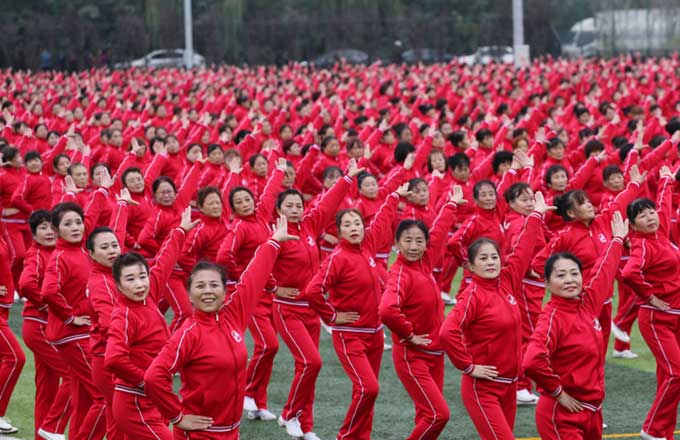At home in Beijing, but still not locals
Wan Ying, entrepreneur
In 2002, Wan arrived in Beijing from Zhoukou city, Henan province, in South China to chase his dream of becoming a successful businessman.
Fourteen years later, his life is approaching middle-aged perfection. He brought his wife and children to the capital in 2005, reuniting the family of four after three years of separation and hard work. He still doesn't have hukou, though.
As the owner of two small supermarkets and two cars, the 41-year-old's life is better than most other unregistered residents, but the absence of the small piece of paper still presents obstacles.
"My kids go to school in Beijing, so I fully understand that education is one of the main reasons people are eager to come to the city," he said. "The teaching quality is high, and the schools are well resourced. I would feel so satisfied if my kids could continue to study in the capital."
However, the reality is that Wan's children, ages 13 and 11, are not eligible to take the gaokao, China's notoriously grueling national university entrance examination, because they have hukou in their hometown, not in Beijing.
"My family might have to go back to Zhoukou for my son and daughter's education," Wan said.
Because the exam varies from region to region, it is better for students to prepare for it in local schools where they can be coached on the key points and styles required by the local testers, which will provide a better chance of a high score and subsequent enrollment in a renowned university.
Wan's son, who attends a middle school in Beijing, will take the gaokao in June 2021.
"If the policy hasn't changed by then, we have to give up all we have here in Beijing and go back to Henan," Wan said.
Studying at college is still one of the fairest ways to climb the social ladder in China. Even if Wan's son has to take the exam in his hometown, there is a chance he will be accepted by a college in Beijing, which would bring him back to the capital. By then, the rest of Wan's family may have returned too.
The irony is that if Wan's son graduates from college after four years, he will experience the same problem his father faces now - finding a job that will provide Beijing hukou and make his life easier.
Apart from concerns about his children's education, Wan hasn't felt disadvantaged by his lack of hukou.
"I have been in Beijing for nearly 15 years, and I've enjoyed lots of the benefits resulting from the city's development," he said.
Qin Fanyou, office worker
"I didn't used to care about Beijing hukou," said Qin, a native of Chongqing, a municipality in Southwest China, who married in the capital in October.
The 26-year-old prefers her hometown: "If not for my husband, I would have returned to Chongqing after I graduated from college in Hong Kong," she said. "It's hard to find authentic Chongqing-style restaurants in Beijing - that's my biggest complaint here."
In Qin's opinion, there are plenty of job opportunities in South China, and Beijing is just one of several cities she could live in.
"I think people in North China like Beijing far more than those of us who come from the south," she said. "Chongqing's economy has developed quickly and I believe I could find a pretty good job if I went back. However, since I settled in Beijing, I have started to care about obtaining hukou because I'm considering bringing my parents to the capital when they get old."
According to Beijing municipal government regulations, Qin will only be able to bring her parents to the capital when they retire if she can obtain hukou. If that happens, her parents will be able to enjoy similar access to healthcare as native Beijingers.
Qin's husband, a Beijing native, has held hukou since birth, which means the couple won't face problems accessing healthcare. Moreover, they are eligible to buy an apartment and car, and their children will automatically qualify to attend the city's public schools.
According to Qin, that means she and her husband are lucky compared with other young married couples in the city, who will never be able to register as Beijing citizens.
|
Zhang serves a dish to customers at her restaurant. |


























